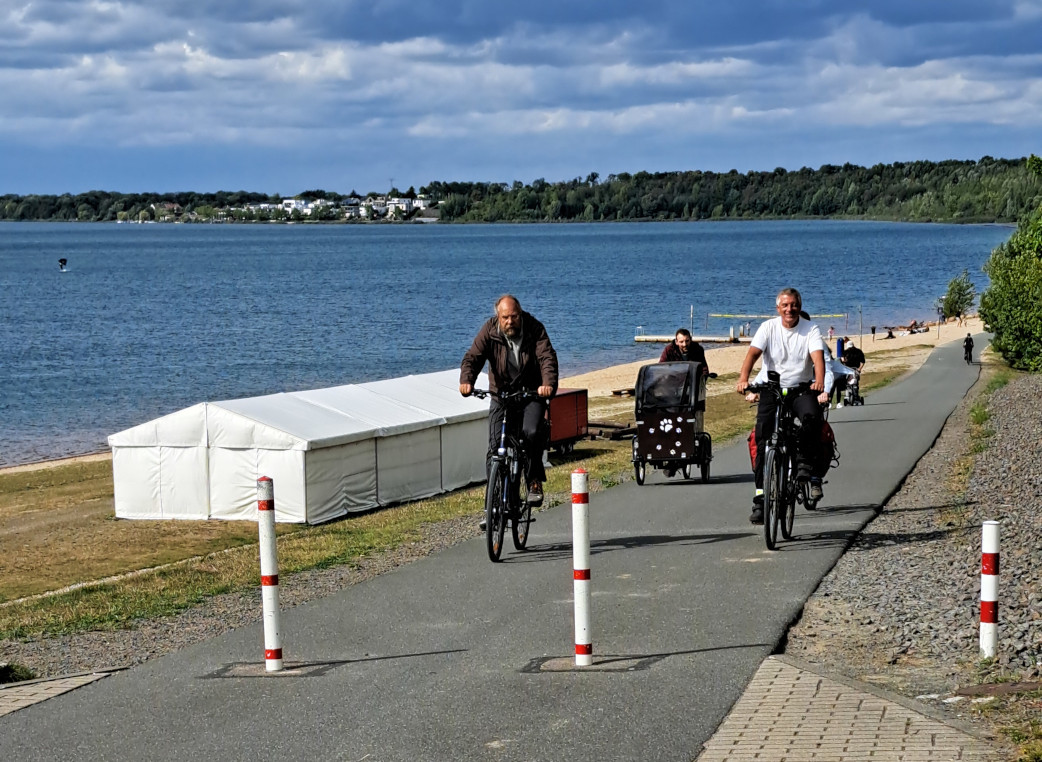Eiszeit: 50 MegaJahre Klimawandel
Jürgen Vollmer
Climate change brought about the geological richness of the Leipzig Bay — and men turned it into a unique lakeland. On our bike tour on the 13th of September, we explored the traces of these changes: We discussed the consequences of climate change in past geological eras and the consequences of human activity.

Biking around the Lake Markkleeberg. Photo: Team WissensSpuren.
The trip started with an introduction and a guided tour of Frank Junge in the Geologic-Paleontological Collection. During stops at the Völkerschlachtdenkmal, the conveyor plants of the Leipzig-Dölitzer Kohlenwerke, the Geological Trail Lake Markkleeberg and Lake Störmthal, and the Mining Technology Park in Großpösna we learned about the traces of the ice ages in the surroundings of Leipzig, remarkable fossils found in the surrounding mines and sandpits, the processes involved in the formation of lignite in the Leipzig Bay, and its extraction in underground and surface coal mining.
During the concluding picnic at the stone experience site, we also discussed the connection to current climate change and the effects of renaturation on the post-mining landscape.
We would like to express our sincere thanks to Frank Junge, Annett Kaldich, and Gerd Krah for their commitment and the many great explanations — and to the participants for their lively interest and intensive exchange.
A more detailed retrospection is available on our German page.